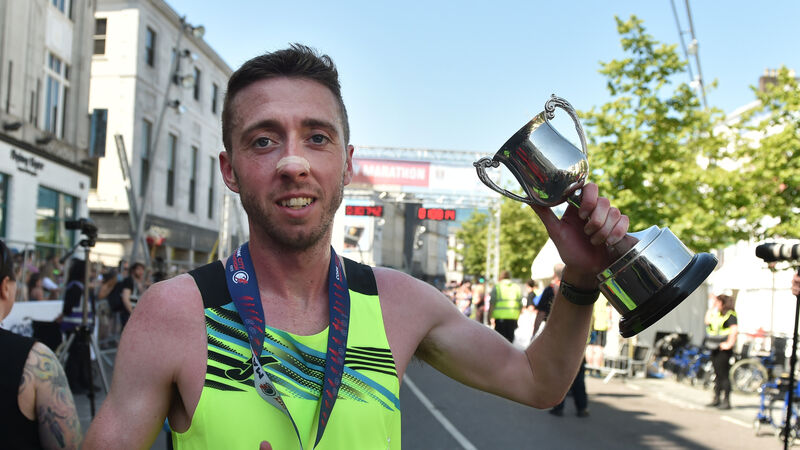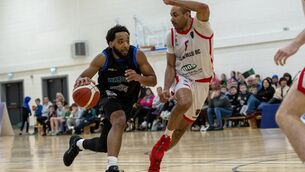Creech blooming through the thorns

Ryan Creech, Leevale winner of the men's half marathon at the Cork City Marathon on Sunday. Pic: Eddie O'Hare
His left foot is in “constant” discomfort. His turn of pace these days is “absolutely s**te”. He’s had both hips resurfaced, his calf sliced open, his foot surgically repaired – twice – and more cortisone shots than he’d like to remember.
But Ryan Creech is still running, and as fit as he’s ever been.











